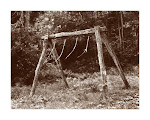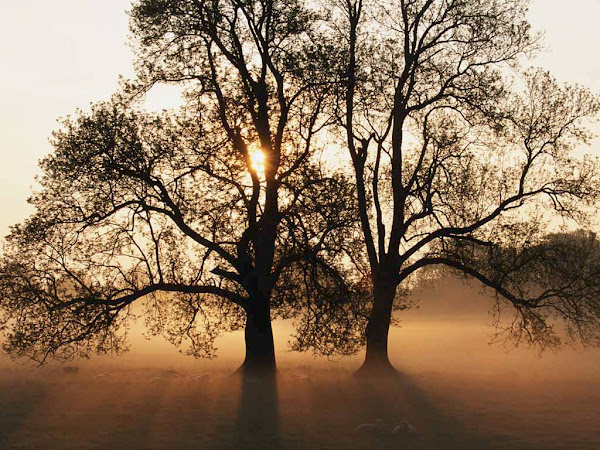Gratitude and Gift Giving
These are not grateful times. It is safe to say that these are times of great presumption and possessiveness. We live in a world (primarily the Western advanced 1st worlds) where much of our days are spent desiring. Economies run on desire. Something deep within our being desires.
Gratitude is a much more pure and simple form of desire. Gratitude regards the thing as not something to be possessed but something to be enjoyed and even cherished. Is it not ironic that much of what we posses we stop enjoying. How many of us have built some room or extension onto our houses around a desire( a hobby or pleasure like pool playing or wine ) only to find these rooms are now dusty relics that represent desire gone south? We coveted this space and now want something new, something more.
The poor teach us how to be grateful for they have been forced by life to allow God to bring things into their life. They have the same desires but have those dispositions formed out of simplicity. A simple meal, an adequate car, a small but cherished home are all gifts. For our
gratefulness to be formed by the nature of divine gift giving is to avoid possessiveness. To possess something is to truly be controlled by the idea of this object and its perceived power. Advertising knows how to take the innate desire to be, to belong, to be known, and attach things to that desire. Now we are known for our things. We are known for our style. We are known for what we seem to possess within and without us. It is our gift to dispense, our gift to define, our gift to display.
Truly grateful people tend to empty themselves of their gifts. In Babette’s Feast, Babette, currently a house keeper, unbeknownst to the town a formerly famous chef in Paris, pours out her gift of culinary beauty upon a small town. They do not know her former status (she is now a mere servant in this community) nor do they understand the power of her gift. Note (http://en.wikipedia.org/wiki/Babette's_Feast) the film powerfully depicts the starkness of the life lived as thought it were to be safely dispensed and monitored with great care and ownership. In the end Babette (once again unbeknownst to the town) wins the lottery in Paris and decides to stay in Denmark in this small town and uses her winnings to create one glorious meal. In this offering she pours out her gift lavishly and something mystically joyful happens to the entire town who receives the gift given. She was a servant mind you with little to no perceived power in the community. In fact, true gifts are never postured as power. They must by their nature refer to the glory of the one receiving the gift. Gifts are graces. They are meant to pour glory into the life of something else.
We don't learn the power of gratitude when there is a great absence of gift giving. We hunger for something and we think it is about us. We think we need to work to receive it and work to hold it. Of course Jesus was clear that the Kingdom is upside down. It is better to give than to receive. This sounds so pious but upon deeper contemplation we find its meaningfulness. The act of giving places us in a position to offer someone something we ourselves desire as well. We all wonder if the universe is adequate. Is there enough? Can I trust the power in and through the world to see me and my need? These are natural ponderings and most of the time our answer is NO! God seems absent and so does the thing we so strongly desire. When our posture shifts from giving rather than receiving, we find that God has already set the world up such that the most glorious of gifts are already available in and through this world without effort. They are not possessions and will never be”things.” This is not to say that the poor and the needy (which we all are) do not need food and sustenance. This is our daily bread. The key here is the word daily.
Unless someone travels to a Third World country the Lord’s Prayer does not make total sense. Give us this day our daily bread, is not a prayer we in the West understand. We have enough bread to last a lifetime and much of it is rotting. Why? It was never meant to be kept in such a manner. Let me qualify here realistic forms of storage and refrigeration. However, you still find that in countries where these are not available, meals are eaten corporately, food is shared communally, and the daily bread is not a curse as much as a blessing of what happens when the individual self is lost in the family self.
We have lost the idea of family in our time. In fact, I have met many whose families were not protective and sustaining but were indeed the very opposite. They refused to share and refused to empower. Thus, there is great woundedness in the West. It comes from the loss of communal families that take care of the weak and elderly. Much of our 401 k’s and retirement programs are really protective mechanisms to hedge against the aloness our society has thrust upon us. We all know that in our latter years we may be alone and forced to die without family.
The poor deal with that reality all the time and have few choices. They still must see sustenance as a daily gift. The government offers some help, some churches step in and offer some assistance, but by in large, most of the poor will indeed die empty handed. This may seem sad and overwhelmingly cruel. In some cases it indeed is as their lives could have been healed or restored with so little medicine or so little money. But just as they had to look to the Father for their daily bread, they now have to await His arms in the Kingdom that is being ushered in. This ushering in will take place primarily by those who have need of it to be ushered in.
We will not usher in what we do not anticipate. We do not long for the new heaven and the new earth for we have created one here now. Disney is not just a theme park. It is a Jungian fantasy that wipes away the dark of life and has us tied into a monorail car in an endless loop of “It’s a Small World After All.” This is humorous but sad. We have become satiated with our desires fulfilled. We have received what we thought we wanted and now there is nothing to long for.
I ponder much about longing for it can become the sanctification of desire. When longing is recognized as a deeper voice in our souls we begin to listen. To be grateful is to truly listen to our longing. What is it that I want? At a very deep level it is indeed immortality. We have indeed been meant to live forever. Thus, to have my desires for immortality submitted to material things only confuses my soul. My soul knows. My soul reads well the power and presence of things. It is my flesh that is stupid and ungrateful. It is my false fallen self that wants things just for the pleasure of ownership and possessiveness.
I meant this excursion to be edifying. To talk of death and the afterlife for some may be morbid. The phrase “I want it and I want it know,” is a mantra of many in our culture. Thus, holding at bay the desires in our hearts is a risk that there is nothing beyond what we see. Materialism is not just a malaise. It is a principality that rules and guards our hearts. It gives us the divine lexicon for meaning. It tells us what we are worth and what others are worth. It dispenses power, weakness, glory, and glamour. I was going to say beauty but it cannot really dispense beauty. Glamour etymologically refers to something that tricks us. Glamour is a ruse. But we in the West are caught up in its spell. We hunger for the style and grace that glamour offers. We buy the goodies that fashion and style tells us who we are.
Let me close with a story. A friend of mine has a friend. This friend of mine has grown up in the middle of the middle class. She has never been without but always known the challenge of hard work and saving. Recent years have added much loss to her life and in the process she came into contact with her “new “friend. This new friend comes from a poor urban background and knows little to nothing about things like music lessons, picnics, Easter dresses, college aspirations, dreams of owning one’s own home. These were never on the table. But this “new” friend was indeed a rich women. What she offered as a gift to my friend was an unencumbered sense of being in the now. She had to. Today was truly today. To live and survive you had to be present. To live and survive you had to believe that this day offered a gift. In that neediness was formed a great sense of gratitude. As my friend (middle class) began to grow in her friendship with her”new” friend, a mutual sharing began to take place. But in the end, it had little to do with possessions, things, power, prestige, or entitlement. In the end the gift shared was the mutual awareness of the sufficiency of the day. Today is sufficient in itself. This is the posture one needs to be grateful. Today, a blessing will indeed be deposited in my heart through the grace of God and His creation. Let me be conduit for that grace. May you be a conduit for that grace.
Thursday, August 21, 2008
Subscribe to:
Post Comments (Atom)






No comments:
Post a Comment